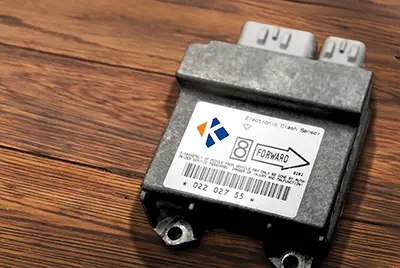The Black Box In Your Car; What You Need To Know
Surprisingly, most drivers do not know their cars have black boxes even though the technology has been out for years. In fact, 96 percent of cars in the United States that were bought pre-2013 come with a black box. The purpose of the black box is to record data before and after an accident occurs. However, it was first used to deploy airbags and make seat belts tighter during emergencies. The microchip tech, otherwise known as event data recorder, slowly evolved to monitor speed, acceleration, seatbelt use, braking, steering, and force of impact in the event of a car crash. Since it is a new trend that has yet to fully develop like in the aviation industry, there are a few things the average driver should know in regards to the black box.
How does a car black box work?
 Technically, they are not black boxes on the same advanced level as airplanes. In comparison to the standard black box used in airplanes which record hours of data, the event data recorder used in automobiles automatically records up to 5 seconds of data prior to, during, or after an accident. Although with technology advancement, it is anticipated that the before/after timeframe will increase to 20 seconds in the next decade. Most automobile black box microchips are programmed to record data continuously, overwriting the previous data until in the event of an impact. Although the 5 seconds loop might seem short, it can reveal significant details to the investigators.
Technically, they are not black boxes on the same advanced level as airplanes. In comparison to the standard black box used in airplanes which record hours of data, the event data recorder used in automobiles automatically records up to 5 seconds of data prior to, during, or after an accident. Although with technology advancement, it is anticipated that the before/after timeframe will increase to 20 seconds in the next decade. Most automobile black box microchips are programmed to record data continuously, overwriting the previous data until in the event of an impact. Although the 5 seconds loop might seem short, it can reveal significant details to the investigators.
How is data retrieved?
It is not as simple as you think. Retrieving data from the black box in your car can cost between $2,000 to $10,000 or even more. Perhaps even more expensive than your car! Well, the high cost is mostly because data retrievals tools are expensive to purchase. A full packaged crash data retrieval tool kit comprises of hardware and software components plus a cable to connect to the onboard diagnostics. But even if you have the tools to retrieve the data, interpreting the data requires professional training.
Who is authorized to access the data?
Since event data recorders are just gaining momentum, the laws regulating who access the data is mostly a gray area in most parts of the United States. At the moment, only 15 states require insurance companies and police to get a warrant before accessing the EDR data. The 15 states include New York, Texas, Virginia, Washington, California, Delaware, Arkansas, Utah, Nevada, Maine, Colorado, North Dakota, Connecticut, New Hampshire, and Oregon. For the rest of the country, the law is not clear on who exactly can access the black box data. Perhaps when more people get enlightened by the legal loophole, it will be taken up by congress. The biggest complaint that remains from car owners is that automakers are entitled to the information captured on the event recorder data. Where is their privacy? On the other hand, hacking is still a threat to security and privacy but since the black boxes are not connected to the internet, the chances are minimal. However, self-driven cars that are directly connected to the internet might pose a hacking loophole.
What about lawsuits?
The black box in your vehicle can be used against you or to your advantage in a lawsuit. Take, for instance, the case of former Massachusetts Lieutenant Governor Timothy Murray after he was involved in an accident in 2011. The former lieutenant governor claimed that he was wearing a seatbelt and not driving beyond the speed limit. However, the evidence collected from the black box showed that Murray was overspeeding at 108mph and did wear a seatbelt prior to the accident, thus contradicting his statement. Of course not every case will go the Timothy Murray way. In a case whereby an accident is caused by engineering defects, an event data recorder could be very crucial in determining your case beyond a reasonable doubt. Don’t forget car companies have an army of lawyers, and you need something that can shut them up.
Can you disable access to your data?
The manufacturers of the black box made it very difficult for car owners to delete or disable the data. Fortunately, there is an option to deny any person access to your data without permission. All you have to do is get yourself OBD Lock, AutoCYB or OBD Saver and lock the diagnostic port so that no one can access your data without consent. At least that way you are sure the only way somebody can access your black box is through a court order.
The National Highway Traffic Safety Administration has been at the forefront campaign to make the installation of a black box mandatory in every new car bought in the United States. The latest statute was passed by NHTSA on September 1, 2014 statute making every new vehicle to be equipped with a black box.
